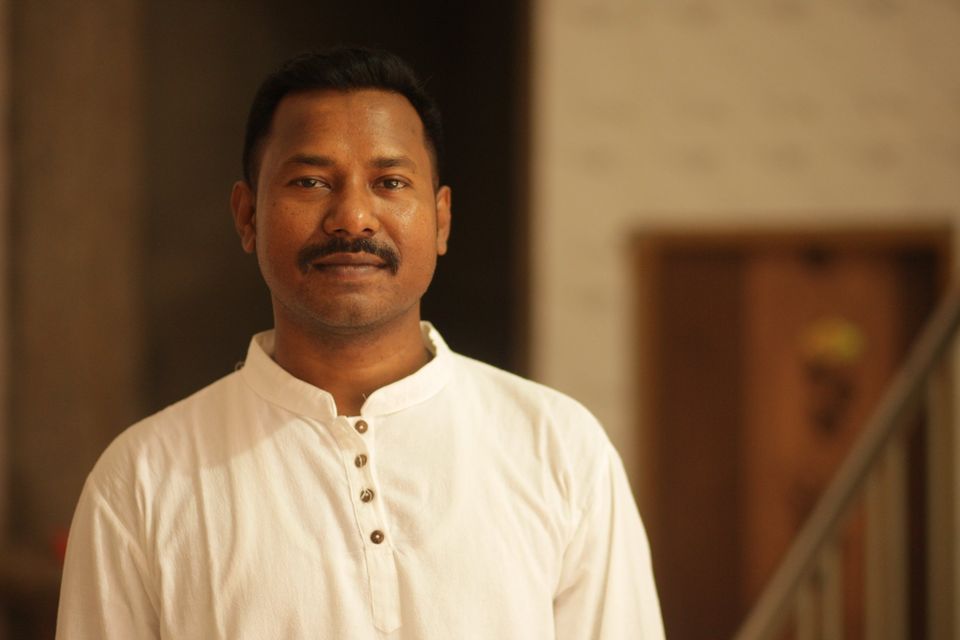
Khokon Suiten Murmu is a Bangladeshi Indigenous rights advocate working as a National Committee member of Bangladesh Indigenous Peoples Forum (BIPF), the umbrella organisation of the Indigenous communities of Bangladesh. He is also a project coordinator at the Kapaeeng Foundation, a leading Bangladeshi organisation advocating for the rights of the Indigenous people.
He is now on a study leave and studying at Flinders University for his postgraduate degree in environmental management and sustainability with an Australia award – a competitive Australian Government scholarship scheme aimed at emerging leaders from developing countries for study, research and professional development in Australia.
Born in the Northern part of Bangladesh, Khokon hails from the Santal community. He experienced isolation in his early childhood because of his Indigenous background. Growing up, he saw that the majority Bengali community marginalised the Santal community.
That social complexity and discrimination made it hard for Khokon to learn the local majoritarian language – Bengali. Still, with determination and persistence, Khokon was able to learn Bengali and moved to the capital city Dhaka for higher education.
Khokon met other Indigenous students from different backgrounds on the university campus and began engaging with Indigenous rights advocacy issues during his university years. Following his graduation, he started to work in the not-for-profit sector, focusing on advocating Indigenous rights issues.
Historically, Indigenous People in Bangladesh are among the most marginalised communities and have faced structural injustice, systematic discrimination, and severe human rights violations including land grabbing, forced eviction, destruction of forests and educational exclusion.
Khokon says his participation in a DTP training program in 2019 in East Timor has bolstered his capacity. He expanded his professional network, improved his advocacy skills and became confident in lobbying.
“Participating in DTP training was my first ever international workshop experience. I met advocates from other regions, including Melanesia and the Pacific. They came from different advocacy backgrounds, including media advocacy, persuasive writing, migrant rights, and disability rights. We formed a strong network. We are still connected and share achievements and career progress. One of the immediate impacts of the DTP training was for me to produce a media advocacy video around a local business and human rights issue. I also published articles in Bangladeshi newspaper after being inspired by DTP training.”
Khokon said DTP training made him more confident in engaging with foreign diplomats posted in Bangladesh. He found that the opportunity to connect with DTP alumni both nationally and internationally has made his work easier. The DTP training also improved Khokon’s value to his employer Kapaeeng Foundation. In many instances, the leadership of the Kapaeeng Foundation had delegated Khokon to represent the organisation at diplomatic meetings.
After completing his post-graduate in Masters of Environmental Management and Sustainability (MEMS) in Australia, Khokon wants to contribute his knowledge to the betterment of Indigenous peoples. In his experience, Khokon has found that many organisations like Kapaeeng Foundation and BIPF, lack understanding on Environmental Rights issues. He hopes that his studies will enhance the organisational capacity through his contribution and advocacy in the future. As part of his postgraduate program, Khokon is learning how to develop a geographic information system (GIS) mapping system. One of his dreams is to create a GIS map of Indigenous Bangladeshi groups that will feature these groups’ cultural and geographic diversity.
DTP acknowledges the traditional custodians of the land on which we work, the Bedegal people of the Eora Nation. We recognise their lands were never ceded, and we acknowledge their struggles for recognition and rights and pay our respects to the Elders – past, present – and the youth who are working towards a brighter tomorrow. This continent always was and always will be Aboriginal land.
Aboriginal and Torres Strait Islander peoples should be aware that this website contains images or names of people who have passed away.
DTP acknowledges the traditional custodians of the land on which we work, the Bedegal people of the Eora Nation. We recognise their lands were never ceded, and we acknowledge their struggles for recognition and rights and pay our respects to the Elders – past, present – and the youth who are working towards a brighter tomorrow. This continent always was and always will be Aboriginal land.
Aboriginal and Torres Strait Islander peoples should be aware that this website contains images or names of people who have passed away.
Privacy Policy | Terms of Use | Disclaimer | Policies
© 2022 Diplomacy Training Program | ABN 31 003 925 148 | Web Design by Studio Clvr